Feeding the Senses
Flowers and food are powerful triggers, evoking memories of life’s happy events and those we’ve loved.
Baked goods can remind you of childhood birthday parties and lovingly prepared after-school snacks. At the sight of a rose bush in full bloom, you’re in the living room of your parents’ house, awkwardly pinning the boutonniere on your first prom date. Freshly brewed coffee takes you back to your late-night job in a dim college-town café. And even a single potted orchid can remind you of your perfect or so you remember it wedding day.
Food and flowers alone can stir up positive emotions, so what would happen if the two came together? A few pioneering garden centers across the country have tried it out and after reading about their successes, you may be looking for a taste of your own.
Assembling the Ingredients
When Terry Fogle was tasked in 2007 with managing the expansion of Fort Valley Nursery, the garden center he co-owns in Woodstock, Va., he knew from the start that a café would be included. “In Europe, it seems every garden center has food service. A lot of places in California do it too,” he says. “But here, it’s a novel concept.”
As he gathered information and traveled the country for research, he talked with owners of garden centers of all sizes, and most recommended getting someone else to run it, and Terry agreed: “We know a good bit about horticulture but nothing about food service,” Fogle says.
So he approached local food-service and marketing mavens Coe and Jean Sherrard, the husband-and-wife duo who owns Woodstock Café and Shoppes, to run the garden center’s restaurant, which would be called the Woodstock Garden Café. Woodstock was a strong choice for a partner: The two businesses have a demographic crossover of women, ages 45 to 65, with a disposable income. And they know the business and have a loyal customer base to show for it, Fogle says. “Food service is a difficult business,” Fogle says. “Some of the statistics I’ve read say that restaurants are the most commonly failed businesses, so you really need to know what you’re doing.”
They reached an agreement for operating the café: Fort Valley and Woodstock Café would begin with a 24-month mutual evaluation period, after which they’d see if it was a beneficial situation for both businesses. Fort Valley put the restaurant’s infrastructure in place, but Woodstock was responsible for building it out from there, including appliances and counters. Fort Valley would foot the utility bills and charge nothing for the space. “We wanted to give them a good reason to do it,” Fogle says.
More than 2,500 miles to the west, another garden center in Loomis, Calif., underwent a similar process. But unlike Fort Valley, a café wasn’t originally in the plan for High Hand Nursery. Owner Scott Paris pays close attention to his clientele, though, and hungry customers continually suggested he add food to the High Hand roster, which also includes the nursery and garden center, as well as an art gallery full of local artists’ work. He finally took their advice, and 15 months later, after what Paris calls a “monumental” process, the High Hand Conservatory was born under the glass of their Nexus greenhouse.
Adding Seasoned Employees
Like Fogle, it was a challenge knowing what steps to take in opening the restaurant. “Not being from the food industry, you can only imagine the learning curve: straight up,” he says. So he put special effort into hiring the right people to do the best job possible. “Besides the obvious challenges of opening a restaurant, there’s difference in the culture between the nursery and restaurant staffs. It requires a shift in management style.”
In staffing the Woodstock Garden Café, the Sherrards moved a few of their brightest stars to Fort Valley to lead the garden café’s team. Because the owners spend more time at their standalone restaurant in Woodstock, they had to be sure the restaurant was in good hands. “Folks out there have been with us a little bit longer, so we don’t have to watch it as closely,” Coe Sherrard says.
Flavoring the Experience
In Glenn Mills, Pa., Urban Outfitters’ garden center concept, Terrain at Styer’s, has made its garden café a major focal point of the business and it shows. After being open for just over a year, the restaurant has already been featured in Food & Wine magazine.
“The nursery and café are the heart and soul of Terrain,” says Jennifer Brodsky, senior special projects manager for Terrain. “We wouldn’t be what we are without it, and the customers have responded very well to the café.”
At Terrain, though there is a refrigerated case with prepared foods to grab and go, the sit-down dining experience “factors heavily into people’s decision to come” to Terrain in the first place, Brodsky says. Families dressed in their Sunday best packed the restaurant on Mother’s Day, In addition to the daily coffee bar and lunch, weekend brunch and a monthly chef’s dinner featuring the best of what’s in season, events for June included a “Girls’ Night Outdoors” with hors-d’oeuvres from the café, a Father’s Day cookout with roasted chicken and barbecue ribs, and Jazz Night with patio fare and live music.
And big days for the restaurant almost always translate into a spike in sales for the garden center, Brodsky says. “When they come and eat, they shop and they come back,” she says.
Terrain, Fort Valley and High Hand all offer their restaurant and garden center spaces for special outside events, too, including seminars,
fundraisers, class reunions, weddings and birthday parties. Paris, who owns High Hand, says working events around the greenhouse structure can be a challenge, but Fort Valley’s Fogle offers a sunny perspective: at least wedding parties never have to decorate, because they’re already surrounded by beautiful flowers!
Hungry for A Challenge
Here’s a little food for thought: The café offerings make customers happy, but even more than that, Paris says, it sets the garden center apart above and beyond their competitors and provides countless new opportunities for garden center owners to improve their business and management skills.
“Opening the restaurant has transformed us from a garden center in a group of garden centers to a destination spot,” says Paris of High Hand.
Approaching the end of Woodstock Café’s 24-month trial period at Fort Valley, business has been steady, and because it opened just as the economic recession was taking hold, it’s hard to put limits on the café’s potential when the market and retail environment recovers. It’s an unusual product, Sherrard says, but one the community has embraced wholeheartedly.
“If it’s not a booming economic success yet, it’s at least an emotional success,” Sherrard says.
No Substitutions
Running a garden café requires the same enthusiasm or more as running a garden center itself. Terrain’s Brodsky says the most important thing is committing to it 100 percent. “You have to be passionate and put in the time and effort,” she says. “It can’t be an afterthought.”
And you can’t fake it. If the feel and atmosphere of your food service isn’t in line with what customers have come to expect from you and your garden center, they’ll sense a disconnect, and the concept will fail. As Shakespeare said, “This above all: to thine own self be true.”
“It’s about being true to your own business, not replicating something someone else does,” Brodsky says. “That’s what should be coming through in the food and service; that’s what connects people to your business. We should never try to be something we’re not.”


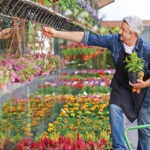

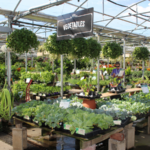

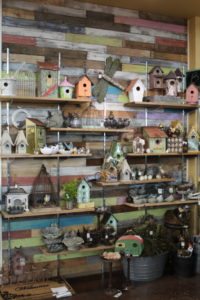
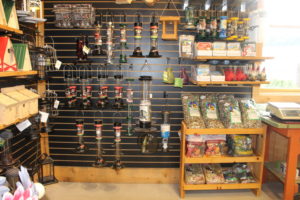
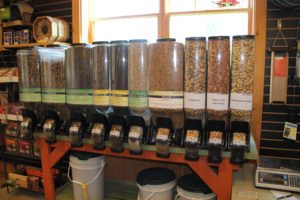
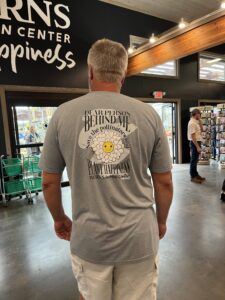



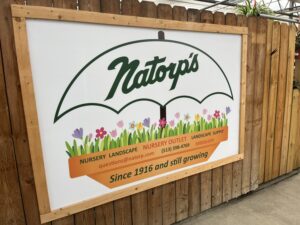
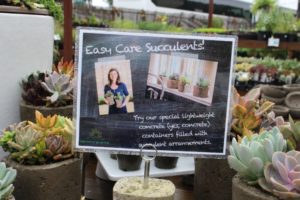

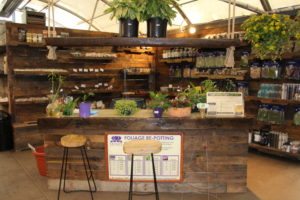
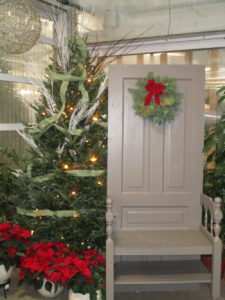
 Videos
Videos





